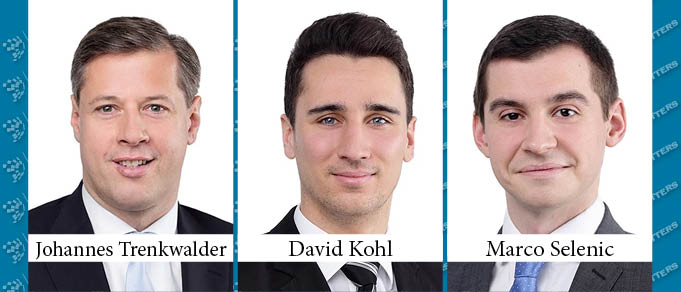The COVID-19 pandemic has revealed the vulnerability of supply chains worldwide, creating an increased awareness of the need to protect critical domestic infrastructure. On April 3, 2020, the Austrian Parliament adopted a motion encouraging the Minister for Digital and Economic Affairs to put forward (“as soon as possible”) a government bill designed to protect companies in key industries from takeovers by third country entities. Eight weeks later the resulting bill was presented to the public.
Background
In Austria, control of foreign direct investments is regulated by Section 25a of the Foreign Trade Act – FTA (“Aussenwirtschaftsgesetz”). The low numbers of applications under Section 25a FTA show that under the current regime only a few foreign investments satisfied the criteria necessitating formal approval: As of June 17, 2019, only eight applications under Section 25a FTA had been submitted. Significant transactions, such as the purchase of more than 25% of Telekom Austria Group by a Mexican ultimate beneficial owner, which acted through an SPV, were structured to avoid triggering the obligation to apply for approval under Section 25a FTA.
The former OVP-FPO government intended to introduce significant changes to the FTA in 2019 to reflect EU Regulation 2019/452, which established a framework for screening foreign direct investments. The “Ibiza-Scandal” and the subsequent early election of a new government, however, delayed these plans. The COVID 19 pandemic has caused the pressure for a swift revision of the foreign investment regime to rise again.
The Current Foreign Investment Regime in Austria
Official approval is generally required under the FTA for investments with the following features: (i) The target company has its corporate seat in Austria; (ii) The target company is (simply put) a limited liability company, a stock corporation, a Societas Europaea (SE), or a partnership (note: asset deals also require official approval under the FTA); (iii) The investor is incorporated in or is a citizen of a non-EEA country (and Switzerland); (iv) The target company is active in a sector which concerns security and public order, including (but not limited to) defense goods, security services, energy supply, water supply, telecommunications, education, and healthcare; and (v) The acquisition involves more than 25% of shares/voting rights or a controlling influence of the target company.
The approval by the Minister for Digital and Economic Affairs is required for such investments before the transactions can be executed. If such approval is not obtained, the purchase agreement is deemed void and the transaction will be reversed.
What Will the Future Hold?
The Austrian government has recently published a draft of a new Investment Control Act (ICA), to replace Section 25a of the FTA. The new draft, which is currently in the review phase, provides for (among other things) the following relevant changes: (i) Thresholds: The 25% threshold remains at this level for most sectors, but was lowered to 10% where critical energy infrastructure, water, critical information technology (5G), R&D in the pharmaceutical/medical devices sector, or certain defense-related sectors are involved. (ii) Application obligation: Although at the moment only the purchaser is required to file an application under 25a FTA, in the ICA draft the obligation to file an application applies to the purchasing entity as well as the target company; (iii) Expansion of scope: Although Section 25a FTA currently applies to entities operating within sectors relevant for security and public order, the draft stipulates that investments will be subject to the FTA if they are likely to affect security or public order, thus extending the scope of application significantly (in addition, the assessment of whether security or public order are affected requires the consideration of an extensive and non-exclusive list of relevant sectors); and (iv) Committee: Although the current approval process lies within the Federal Ministry for Digital and Economic Affairs, the ICA widens the decision-making process by involving a committee of representatives of several ministries, including Digital and Economic Affairs; Finance; Climate Protection, Environment, Energy, Mobility, Innovation and Technology; European and International Affairs and Social Affairs, Health, Care, and Consumer Protection. The committee can prescribe requirements that need to be fulfilled to receive approval.
Even though the details of the new ICA are not yet certain the following can be said: The formerly rarely applicable obligation to file for approval under Section 25a FTA will become a standard check box that needs to be ticked off in many transactions where non-EU/EEA purchasers are involved.
By Johannes Trenkwalder, Partner, and David Kohl and Marco Selenic, Associates, CMS Vienna
This Article was originally published in Issue 7.6 of the CEE Legal Matters Magazine. If you would like to receive a hard copy of the magazine, you can subscribe here.

















